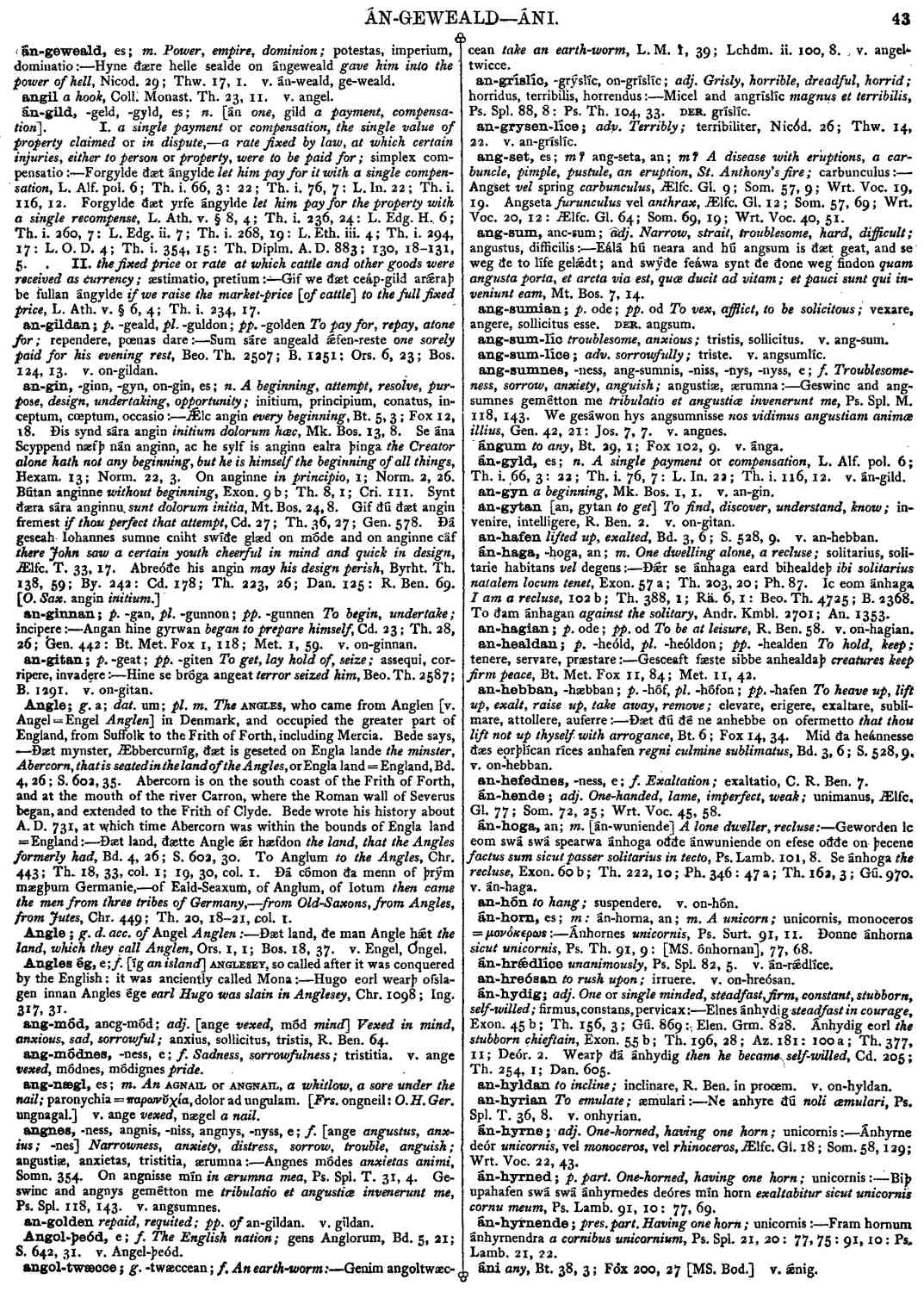Angle
- noun [ masculine ]
-
Ðæt land, ðætte Angle ǽr hæfdon
the land, that the Angles formerly had,
- Bd. 4, 26; S. 602, 30 .
-
To Anglum
to the Angles,
- Chr. 443; Th. 18, 33, col. 1; 19, 30, col. 1 .
-
Ðá cómon ða menn of þrým mægþum Germanie, — of Eald-Seaxum, of Anglum, of Iotum
then came the men from three tribes of Germany, — from Old-Saxons, from Angles, from Jutes,
- Chr. 449; Th. 20, 18-21, col. 1 .
Bosworth, Joseph. “Angle.” In An Anglo-Saxon Dictionary Online, edited by Thomas Northcote Toller, Christ Sean, and Ondřej Tichy. Prague: Faculty of Arts, Charles University, 2014. https://bosworthtoller.com/1829.
Checked: 1